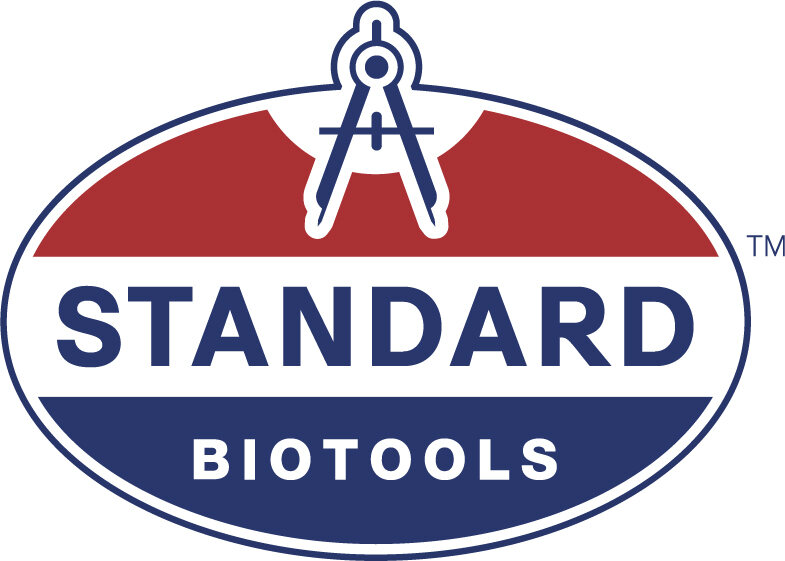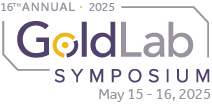

If you experience difficulty with the video you can Watch on YouTube
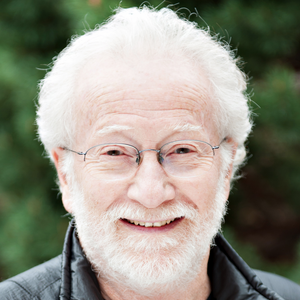
Dr. Larry Gold is the Founder of SomaLogic. Prior to SomaLogic, he also founded and was the Chairman of NeXagen, Inc., which later became NeXstar Pharmaceuticals, Inc. In 1999, NeXstar merged with Gilead Sciences, Inc. to form a global organization committed to the discovery, development and commercialization of novel products that treat infectious diseases.
During his nearly 10 years at NeXstar, Dr. Gold held numerous executive positions including Chairman of the Board, Executive Vice President of R&D, and Chief Science Officer. Before forming NeXagen, he also co-founded and served as Co-Director of Research at Synergen, Inc., a biotechnology company later acquired by Amgen, Inc. Dr. Gold recently became the CEO of Lab79, a new biotech company in Boulder, Colorado.
Since 1970, Dr. Gold has been a professor at the University of Colorado at Boulder. While at the University, he served as the Chairman of the Molecular, Cellular and Developmental Biology Department from 1988 to 1992. Between 1995 and 2013, Dr. Gold received the CU Distinguished Lectureship Award, the National Institutes of Health Merit Award, the Career Development Award, the Lifetime Achievement Award from the Colorado Biosciences Association, and the Chiron Prize for Biotechnology. Dr. Gold was also awarded the 8th International Steven Hoogendijk Prize by the Dutch Batavian Society of Experimental Philosophy in 2018.
In addition, Dr. Gold has been a member of the American Academy of Arts and Sciences since 1993 and the National Academy of Sciences since 1995. He is a fellow of the National Academy of Inventors. Dr. Gold also serves on the Board of Directors for CompleGen, Plato BioPharma, Lab79, Keck Graduate Institute, and the Biological Sciences Curriculum Study.
Dr. Gold established the Gold Lab at the University of Colorado Boulder in 1971. Starting with basic research on bacteria and bacteriophage, the lab shifted its focus to human disease following the invention of the SELEX process in 1989. The Gold Lab today focuses on the utilization of biological and information technology to improve healthcare. Dr. Gold also began holding the GoldLab Symposia in 2010, an annual event that tackles big questions in healthcare. He is determined to change healthcare for the better through teaching, research, and debate among scientists and citizens throughout the world.
Abstract
Abstract coming soon!
Abstract
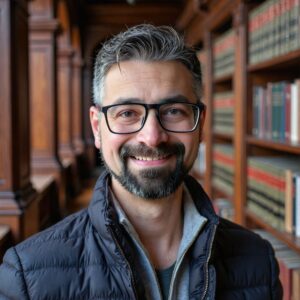 Many of us know that AI has tremendous potential to change healthcare. But we are still far from leveraging its full potential. This talk presents a new model, MetisAI. MetisAI leverages large datasets to accurately find millions of patients at risk of adverse health events. This allows timely medical interventions that reduce costs while improving lives.
Many of us know that AI has tremendous potential to change healthcare. But we are still far from leveraging its full potential. This talk presents a new model, MetisAI. MetisAI leverages large datasets to accurately find millions of patients at risk of adverse health events. This allows timely medical interventions that reduce costs while improving lives. Biography
Dean Noble-Tolla is the Chief Product & Analytics Officer at Prealize Health where he oversees the development of the most advanced AI model in healthcare. Over the past 15 years, he has worked with health plans and healthcare providers to translate complex data into transformative strategies, scalable technologies, and measurable growth. His expertise in data science and healthcare analytics has fueled the creation of predictive models, data pipelines, and robust analytics across a wide range of organizations including regional, Blues, and national health plans. This breadth of experience has granted him a rare, comprehensive perspective on the intricacies of how data drives care and business models throughout the U.S. healthcare system.
At Prealize Health, Dean spearheaded the launch of a groundbreaking AI foundation model that not only identifies who is rising in risk, but also predicts when that risk will occur and pinpoints the clinical drivers behind it. His prior work includes building predictive solutions that uncovered millions in annual medical waste, automated care authorization, optimized wound care triage, and enabled proactive palliative care referrals. Before transitioning into healthcare, he conducted research in aging, life expectancy, systems biology, and synthetic biology. He holds a B.S. in Mathematics from the University of Georgia and a Ph.D. in Biomedical Engineering from the University of California, Davis.
Abstract
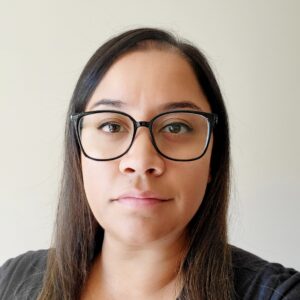 This presentation reveals the transformative journey of WISE-R, born from a critical realization: in today's data-rich world, organizations are drowning in information yet starving for true intelligence. Despite investing millions in data and AI, organizations around the world consistently miss the strategic opportunities that define their future. This paradox drove the creation of WISE-R's revolutionary living intelligence platform.
This presentation reveals the transformative journey of WISE-R, born from a critical realization: in today's data-rich world, organizations are drowning in information yet starving for true intelligence. Despite investing millions in data and AI, organizations around the world consistently miss the strategic opportunities that define their future. This paradox drove the creation of WISE-R's revolutionary living intelligence platform.Biography
Hansilla Alaigh is the Founder and CEO of Global Action Alliance, an AI tech company pioneering the next generation of strategic intelligence. With 14+ years in biotech and pharma leadership, she drives R&D strategy and stakeholder management across medical devices, vaccines, and therapeutics, collaborating with government and non-government agencies globally. Her expertise spans from target identification through commercialization in biotech, large pharma, and non-profits. Hansilla holds a B.S. in Biochemistry and Neuroscience from the University of Surrey, attended Harvard Medical School, earned an M.S. in Systems Engineering from Cornell University.
Abstract
Abstract coming soon!
Abstract
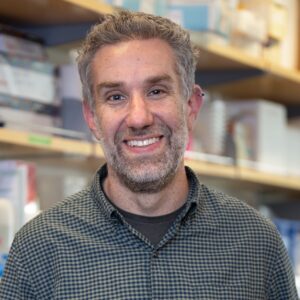 Small molecule therapies represent a significant portion of FDA-approved drugs, yet their development is often hindered by the challenge of balancing on-target activity with desirable pharmacokinetic (PK) properties. Pharmacokinetic properties, which encompass absorption, distribution, metabolism, and excretion (ADME), determine a drug's fate within the body and are crucial for its efficacy and safety. Currently, the optimization of these properties is often addressed late in the pre-clinical drug discovery process, leading to costly failures. We are working to overcome this limitation by proactively characterizing the chemical space accessible to ADMET-associated proteins ("anti-targets"). By applying recent advances in experimental and computational structural biology, a comprehensive open library of experimental and structural datasets are being generated. This precompetitive resource will provide valuable insights into the binding properties of "anti-targets" and empower researchers to develop predictive AI models for pharmacokinetic optimization. This shift towards a more proactive and data-driven approach could streamline lead optimization, mitigate late-stage attrition, and ultimately accelerate the delivery of new therapies to patients.
Small molecule therapies represent a significant portion of FDA-approved drugs, yet their development is often hindered by the challenge of balancing on-target activity with desirable pharmacokinetic (PK) properties. Pharmacokinetic properties, which encompass absorption, distribution, metabolism, and excretion (ADME), determine a drug's fate within the body and are crucial for its efficacy and safety. Currently, the optimization of these properties is often addressed late in the pre-clinical drug discovery process, leading to costly failures. We are working to overcome this limitation by proactively characterizing the chemical space accessible to ADMET-associated proteins ("anti-targets"). By applying recent advances in experimental and computational structural biology, a comprehensive open library of experimental and structural datasets are being generated. This precompetitive resource will provide valuable insights into the binding properties of "anti-targets" and empower researchers to develop predictive AI models for pharmacokinetic optimization. This shift towards a more proactive and data-driven approach could streamline lead optimization, mitigate late-stage attrition, and ultimately accelerate the delivery of new therapies to patients.Biography
James Fraser studied Biology as an undergraduate at McGill University. His Ph.D. work at UC Berkeley under Dr. Tom Alber focused on the relationship between protein conformational dynamics and enzymatic catalysis. He moved to UCSF to start his lab in 2011. Currently, Professor Fraser is Chair of the Department of Bioengineering and Therapeutic Sciences. His lab’s work spans across various disciplines, including structural biology, deep mutational scanning, and drug discovery. He is also known for his commitment to open science and served on the board of ASAPbio for many years.
Abstract
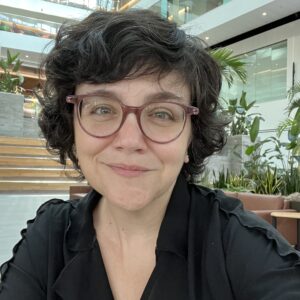 Endometriosis affects an estimated 6–10% of women of reproductive age, yet it remains underdiagnosed, under-researched, and poorly understood. This talk presents human-centered AI approaches to improve the detection and management of endometriosis, leveraging patient-generated data and large-scale observational health records. By integrating AI-driven phenotyping, predictive modeling, and real-world patient insights, this work aims to advance early detection and empower individuals with endometriosis in their care journey.
Endometriosis affects an estimated 6–10% of women of reproductive age, yet it remains underdiagnosed, under-researched, and poorly understood. This talk presents human-centered AI approaches to improve the detection and management of endometriosis, leveraging patient-generated data and large-scale observational health records. By integrating AI-driven phenotyping, predictive modeling, and real-world patient insights, this work aims to advance early detection and empower individuals with endometriosis in their care journey.Biography
Noémie Elhadad is an Associate Professor and Chair of the Department of Biomedical Informatics at Columbia University. Her research sits at the intersection of artificial intelligence, human-centered computing, and medicine, with a focus on developing novel machine-learning methods. She designs AI-driven tools to support patients and clinicians, ensuring that the AI systems of the future are safe, effective, and advance medicine.
Abstract
Abstract coming soon!
Abstract
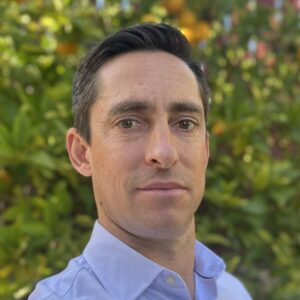 Illumina’s mission to unlock the power of the human genome has led to the development of genome sequencers that have transformed clinical diagnostics and biomedical research. Illumina is building on that vision by extending the use of their sequencing instruments beyond traditional genomics with a portfolio of multiomics products spanning epigenetics, transcriptomics, and proteomics. These end-to-end multiomics products will enable researchers and clinicians to integrate diverse biological data streams, offering unprecedented insights into disease mechanisms and paving the way for more precise diagnostics and targeted therapeutic strategies.
Illumina’s mission to unlock the power of the human genome has led to the development of genome sequencers that have transformed clinical diagnostics and biomedical research. Illumina is building on that vision by extending the use of their sequencing instruments beyond traditional genomics with a portfolio of multiomics products spanning epigenetics, transcriptomics, and proteomics. These end-to-end multiomics products will enable researchers and clinicians to integrate diverse biological data streams, offering unprecedented insights into disease mechanisms and paving the way for more precise diagnostics and targeted therapeutic strategies.Biography
Mike Mehan leads the Multiomics Bioinformatics group at Illumina, driving innovations in epigenomics, transcriptomics, and proteomics. Illumina is a global leader in next-generation sequencing and enables researchers and clinicians to gain deeper insights from genomics data. Mike contributes to Illumina’s mission of transforming human health by working with his team to develop algorithms and software for Illumina’s portfolio of multiomics products. This new multiomics direction in sequencing combines diverse biological data to deliver a complete view of complex systems, unlocking new potential in disease diagnosis, customized therapies, and personalized medicine.
Abstract
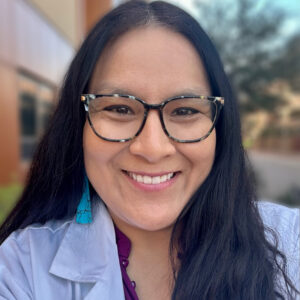 Traditionally, the innovation pathway as it relates to genomic data derived from Tribal Nations and their members has been largely one-sided. Genomic and health data have often been collected from Indigenous peoples via recruitment in large-scale genomic diversity projects and clinical testing with the promise that derived benefits of such research would ameliorate disparities in health outcomes. However, the promises of genomics medicine have yet to materialize in chronically medically underserved Tribal communities. Yet, the interest in recruiting Indigenous peoples in genomics research persists amid researcher interests to understand the breadth of human genomic variation. Additionally, industry and academia disproportionately stand to benefit from variant discovery and variant-specific therapeutics which have potential commercial utility. There is an impending collision between Tribal data sovereignty and non-Tribal interests in the space of healthcare delivery and ownership/stewardship of genomic data from Tribal members. We discuss how emerging technologies as rooted in Tribally-led data repositories, machine learning approaches, and shifts in Tribal laws and resolutions may shift status quo innovation pathways to enable Tribal, tech-centered data futures rooted in genomic and health data.
Traditionally, the innovation pathway as it relates to genomic data derived from Tribal Nations and their members has been largely one-sided. Genomic and health data have often been collected from Indigenous peoples via recruitment in large-scale genomic diversity projects and clinical testing with the promise that derived benefits of such research would ameliorate disparities in health outcomes. However, the promises of genomics medicine have yet to materialize in chronically medically underserved Tribal communities. Yet, the interest in recruiting Indigenous peoples in genomics research persists amid researcher interests to understand the breadth of human genomic variation. Additionally, industry and academia disproportionately stand to benefit from variant discovery and variant-specific therapeutics which have potential commercial utility. There is an impending collision between Tribal data sovereignty and non-Tribal interests in the space of healthcare delivery and ownership/stewardship of genomic data from Tribal members. We discuss how emerging technologies as rooted in Tribally-led data repositories, machine learning approaches, and shifts in Tribal laws and resolutions may shift status quo innovation pathways to enable Tribal, tech-centered data futures rooted in genomic and health data.Biography
A member of the Navajo Nation, she cofounded the Native BioData Consortium. Today, Tsosie leads the Tsosie Lab for Indigenous Genomic Data Equity and Justice at ASU. One lab project involves working with Tribal partners in the Phoenix area to create a multiethnic cohort for genomic and nongenomic data. The data, which will include social, structural, cultural and traditional factors, could provide a more complex picture of health disparities and what causes them, as well as a more nuanced understanding of Indigenous identity and health.
Abstract
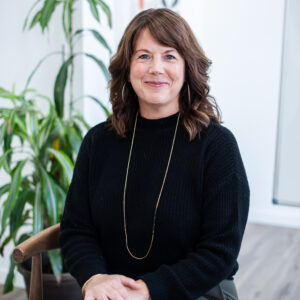 The messages we receive from the external world on a moment to moment basis often give us the feedback that we need to be doing more, and that what we are doing needs to be better. It is no wonder that our internal dialogue follows the same narrative. Consequently, we feel at our core that we are not loveable, not worthy, not deserving, and ultimately, not being enough. Our way of being becomes one of great self-aggression and avoidance. Self compassion is the warmth, love, and acceptance we choose to offer ourselves while we are in pain, teaching us to tend to ourselves regardless of the circumstances. It asks us to create a practice of turning toward our difficulties, and ultimately ourselves, with non judgement and compassion. Through self compassion we learn to meet ourselves and our lives with kindness instead of judgment, connection and community instead of isolation, and mindfulness or intention instead of being lost in thought or hyper analysis of our problems.
The messages we receive from the external world on a moment to moment basis often give us the feedback that we need to be doing more, and that what we are doing needs to be better. It is no wonder that our internal dialogue follows the same narrative. Consequently, we feel at our core that we are not loveable, not worthy, not deserving, and ultimately, not being enough. Our way of being becomes one of great self-aggression and avoidance. Self compassion is the warmth, love, and acceptance we choose to offer ourselves while we are in pain, teaching us to tend to ourselves regardless of the circumstances. It asks us to create a practice of turning toward our difficulties, and ultimately ourselves, with non judgement and compassion. Through self compassion we learn to meet ourselves and our lives with kindness instead of judgment, connection and community instead of isolation, and mindfulness or intention instead of being lost in thought or hyper analysis of our problems.Biography
For 30+ years, Taylor White Moffitt has worked with individuals, couples and groups guiding them to increased self awareness and self care with skills that create lasting change. Taylor believes and has shown that these practices give us what we need to be more empowered and service-centered, as opposed to our societal default of often being self absorbed and unintentional. In learning how to become the center of your universe in the most generous of ways, you become a human who tends to themselves with radical self care. This allows you to participate in life as your most authentic self, inspiring the creativity, productivity, clarity and ease you expected from self improvement.
Abstract
Abstract coming soon!
Abstract
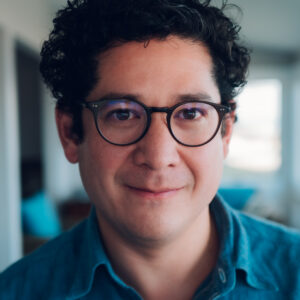 The advent of artificial intelligence challenges us to look at ourselves and articulate our own uniqueness. What separates human thinking from artificial thinking? Human experience from artificial experience? At a time when, for both practical and ideological reasons, the artificial is going to be elevated over the human, we need to understand the value in the human version of things. We have the tools to pinpoint our own value -- they've been built by philosophers, scientists, and even theologians -- but we need to repurpose them for our present moment.
The advent of artificial intelligence challenges us to look at ourselves and articulate our own uniqueness. What separates human thinking from artificial thinking? Human experience from artificial experience? At a time when, for both practical and ideological reasons, the artificial is going to be elevated over the human, we need to understand the value in the human version of things. We have the tools to pinpoint our own value -- they've been built by philosophers, scientists, and even theologians -- but we need to repurpose them for our present moment.Biography
Joshua Rothman is a staff writer at The New Yorker. He writes Open Questions, a weekly column about intellectual life, as well as profiles of thinkers in various disciplines. Previously, he was the magazine’s ideas editor.
Abstract
Since World War II, several states have relied on incarcerated individuals to fight wildfires, providing them with the same high-level training as state-certified wildland firefighters. For many, this work offers a rare sense of freedom—access to open air, better meals, new skills, and a break from confinement. Yet, despite the dangers, incarcerated firefighters earn as little as a few dollars per day, rarely exceeding $15. Many credit the camaraderie and sense of purpose they found in these programs as key to their reintegration into society.Biography
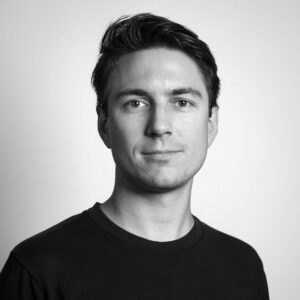
Chris Janjic is a cinematographer specializing in non-fiction storytelling. Based in Portland, OR, he has filmed in over 15 countries across 5 continents. His work has been recognized by the National Daytime Emmy, Northwest Regional Emmy, AIB, Communicator, Telly, W3, and Webby Awards. He holds a B.S. in Photojournalism from Syracuse University.
Biography

Brandon N. Smith is the Co-Founder and Senior Advisor to Executive Leadership at FFRP. Through this role, Smith works closely with the CEO and Leadership Team to provide guidance on the organization’s strategic direction in order to maximize the impact and mission of FFRP.
